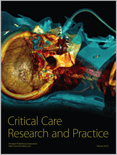
Critical Care Research and Practice
Scope & Guideline
Exploring breakthroughs in intensive care medicine and patient outcomes.
Introduction
Aims and Scopes
- Clinical Outcomes and Prognostic Indicators:
The journal emphasizes the importance of understanding clinical outcomes in critically ill patients, including mortality prediction, recovery metrics, and long-term functional status. - Infection and Antimicrobial Resistance:
A significant focus is placed on the burden of infections, particularly in ICU settings, including studies on antibiotic resistance patterns and the management of multidrug-resistant organisms. - Innovative Therapeutic Approaches and Interventions:
Research on novel therapeutic strategies, such as the use of ketamine, ECMO, and advanced ventilation techniques, is a core component, highlighting the evolution of treatment in critical care. - Pediatric Critical Care:
The journal includes a dedicated section for pediatric critical care, addressing unique challenges and treatment methodologies for critically ill children. - Ethics and Decision-Making in Critical Care:
Exploration of ethical dilemmas and decision-making processes in critical care situations, including end-of-life care and consent issues, is an important area of research. - Quality Improvement and Patient Safety:
Research that focuses on quality improvement initiatives and patient safety protocols within critical care settings is consistently highlighted.
Trending and Emerging
- Impact of COVID-19 on Critical Care:
The ongoing exploration of COVID-19's impact on critical care practices, including management strategies, patient outcomes, and resource utilization, remains a prominent theme, reflecting the pandemic's lasting effects on healthcare. - Predictive Analytics and Machine Learning:
Emerging studies utilizing predictive analytics and machine learning for improving patient outcomes in critical care settings indicate a growing trend towards data science integration in clinical decision-making. - Interprofessional Collaboration in Critical Care:
Research focusing on the dynamics of interprofessional teamwork and its impact on patient care in ICU settings is gaining traction, emphasizing the importance of collaborative approaches in managing complex cases. - Long-Term Outcomes and Follow-Up Care:
There is an increasing emphasis on understanding the long-term outcomes of critically ill patients, including post-ICU syndrome and recovery trajectories, highlighting the need for comprehensive follow-up care.
Declining or Waning
- Traditional Ventilation Techniques:
Research on conventional mechanical ventilation strategies has seen a decrease, likely due to the emergence of more advanced and tailored ventilation approaches. - Non-Evidence-Based Practices in ICU:
There is a noticeable reduction in studies focusing on practices lacking strong evidence, as the field increasingly prioritizes data-driven clinical guidelines. - Generalized Pain Management Approaches:
Research on broad, non-specific pain management strategies is declining, as there is a shift towards personalized, multimodal pain management protocols.
Similar Journals
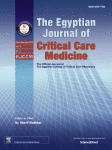
Egyptian Journal of Critical Care Medicine
Transforming Intensive Care Through Innovative ResearchEgyptian Journal of Critical Care Medicine, published by LIPPINCOTT WILLIAMS & WILKINS, serves as a vital resource in the field of critical care, providing a platform for innovative research and discussions that influence practice in intensive care settings. Established as an Open Access journal since 2013, it aims to disseminate high-quality research articles, clinical studies, and reviews that enhance understanding and application of critical care medicine. With an ISSN of 2090-7303 and an E-ISSN of 2090-9209, the journal is committed to ensuring that emerging insights and knowledge are freely available to a global audience, fostering collaboration among researchers, clinicians, and educators. Positioned within the landscape of critical care, the journal not only highlights the significance of patient management in life-threatening conditions but also promotes advancements in clinical protocols, making it essential reading for practitioners and scholars dedicated to enhancing patient outcomes in intensive care units.

Journal of Intensive Care
Navigating the Future of Critical Care TogetherThe Journal of Intensive Care, published by BMC, is a leading open access journal dedicated to advancing research and knowledge in the fields of critical care and intensive care medicine. With an impressive 2023 rank of #11 out of 110 in its category and placing in the 90th percentile, this journal offers a vital platform for researchers, clinicians, and healthcare professionals to disseminate innovative findings and best practices. Launched in 2013, the journal has gained significant recognition, achieving a Q1 quartile ranking in critical care, reflecting its commitment to high-quality contributions that address pressing issues in patient management and care. Additionally, as an open access publication, the journal ensures that its content is widely accessible, fostering collaboration and knowledge sharing within the global medical community. For those engaged in intensive care, the Journal of Intensive Care is an essential resource for staying abreast of the latest research trends and clinical advancements.
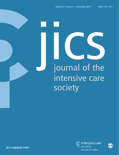
Journal of the Intensive Care Society
Shaping the Future of Intensive CareThe Journal of the Intensive Care Society, published by SAGE Publications Ltd, serves as a premier platform for disseminating cutting-edge research and advancements in the field of critical care and intensive care medicine. With its ISSN of 1751-1437, this influential journal holds a distinguished position, currently ranked in the Q2 category for Critical Care and Intensive Care Medicine and Q1 in Critical Care Nursing, showcasing its significant impact within the academic community. The journal caters to a diverse audience including researchers, healthcare professionals, and students, by providing insightful articles that inform best practices and enhance patient care in intensive settings. It boasts impressive Scopus ranks, listed as 4th out of 27 in Critical Care Nursing and 32nd out of 110 in the broader category of Critical Care Medicine, reflecting its commitment to excellence. With content available from 2010 through to 2024, the Journal of the Intensive Care Society is essential for those looking to stay at the forefront of critical care innovation and research.
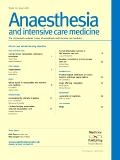
Anaesthesia and Intensive Care Medicine
Enriching Knowledge in Anesthesia and Intensive Care.Anaesthesia and Intensive Care Medicine, published by Elsevier, is a vital resource in the fields of anesthesiology and critical care, devoted to disseminating innovative research and advancements spanning from 2003 to 2024. With an ISSN of 1472-0299 and an E-ISSN of 1878-7584, this journal provides a platform for healthcare professionals, researchers, and students to engage with a diversity of topics, including pain management, anesthesia techniques, and intensive care protocols. Although it currently holds a category quartile ranking of Q4 in 2023 within both Anesthesiology and Critical Care disciplines, the journal continuously aims to enhance its impact and relevance in the academic community. The journal does not operate on an open-access model, ensuring that subscribers and institutions have exclusive access to high-quality, peer-reviewed research. With its focus on advancing clinical practices and fostering scientific dialogue, Anaesthesia and Intensive Care Medicine is essential for those looking to stay at the forefront of patient care and medical research.

Critical Care and Resuscitation
Exploring breakthroughs in critical care for improved patient lives.Critical Care and Resuscitation is a premier peer-reviewed journal published by Elsevier, focusing on the dynamic fields of Anesthesiology, Critical Care, and Emergency Medicine. Established in Australia, this journal has been a significant contributor to scholarly research since its inception in 1999, maintaining a strong reputation with a commendable impact factor, evidenced by its Q1 quartile rankings across its relevant categories for 2023. The journal's commitment to disseminating high-quality research is reflected in its elite standings: it ranks #7 out of 109 in Emergency Medicine, #12 out of 136 in Anesthesiology, and #16 out of 110 in Critical Care. Aimed at researchers, clinicians, and healthcare professionals, Critical Care and Resuscitation provides a vital platform for the latest advancements in patient care and clinical strategies, making it an essential resource for those eager to stay at the forefront of these critical disciplines. Although lacking Open Access options, its rigorous peer-review process ensures the publication of valuable insights that shape current practices and influence future developments in healthcare.
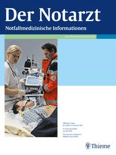
Notarzt
Elevating standards in emergency medicine through research.Notarzt is a well-regarded academic journal published by GEORG THIEME VERLAG KG, focusing on critical care, intensive care medicine, and emergency medicine. With an ISSN of 0177-2309 and an E-ISSN of 1438-8693, this German-based journal has been contributing to the medical field since its inception in 1985. Despite being categorized in the Q4 quartile for both Critical Care and Intensive Care Medicine and Emergency Medicine, Notarzt continues to provide a platform for innovative research, case studies, and developments that inform practitioners and researchers alike. With a publication history spanning significant years such as 1993 and 1999 to 2024, Notarzt is dedicated to improving outcomes in emergency and critical care settings through the dissemination of pivotal findings and comprehensive reviews. Although currently not an Open Access journal, it remains an essential resource for professionals striving to stay abreast of developments in their field.

ANASTHESIOLOGIE & INTENSIVMEDIZIN
Exploring the Frontiers of Pain Management and CareANASTHESIOLOGIE & INTENSIVMEDIZIN is a peer-reviewed journal dedicated to the fields of anesthesiology, critical care, and intensive medicine. Published by AKTIV DRUCK & VERLAG GMBH in Germany, this journal has been an essential resource in the medical community since its inception in 1978. With a current impact factor placing it in the Q3 quartile in both anesthesiology and critical care categories, it serves as a platform for disseminating cutting-edge research and innovative practices. The journal invites contributions that enhance the understanding of pain management, perioperative care, and intensive treatment methodologies. Although not open access, it remains committed to advancing knowledge and improving patient outcomes. With a strong focus on practical applications, ANASTHESIOLOGIE & INTENSIVMEDIZIN is invaluable for researchers, clinical practitioners, and students seeking to deepen their expertise in these crucial areas of healthcare.
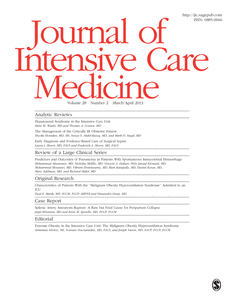
JOURNAL OF INTENSIVE CARE MEDICINE
Elevating Patient Outcomes Through InnovationJOURNAL OF INTENSIVE CARE MEDICINE, published by SAGE PUBLICATIONS INC, is a leading peer-reviewed journal dedicated to advancing the field of critical care and intensive medicine. With an ISSN of 0885-0666 and an E-ISSN of 1525-1489, this esteemed journal showcases innovative research, clinical practices, and synthesis of knowledge that informs the complexities of patient care in intensive settings. Recognized for its exceptional impact, it holds a prestigious Q1 ranking in the Critical Care and Intensive Care Medicine category, landing in the upper 15% of its field according to Scopus rankings. Celebrating over three decades of publication since its inception in 1986, the journal serves both as a resource for seasoned professionals and a platform for emerging researchers eager to contribute to evidence-based practice. Although not open access, the journal ensures that critical insights and advancements are accessible to a broad audience, fostering a collaborative environment that is essential for the evolution of intensive care protocols and the enhancement of patient outcomes. With its commitment to excellence, the JOURNAL OF INTENSIVE CARE MEDICINE stands out as an invaluable resource that continues to shape the future of healthcare in critical domains.
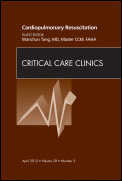
CRITICAL CARE CLINICS
Fostering Excellence in Intensive Care MedicineCRITICAL CARE CLINICS is a premier academic journal published by W B SAUNDERS CO-ELSEVIER INC, focusing on advancing knowledge in the fields of Critical Care and Intensive Care Medicine. With an impressive impact factor and designated as Q1 in both Critical Care and Intensive Medicine categories, this journal is a leading resource for healthcare professionals, researchers, and students alike. Since its establishment in 1985, it has evolved into an essential conduit for cutting-edge research, clinical insights, and evidence-based practices, bridging the gap between theoretical understanding and practical application in critical care. The journal maintains a high ranking, being positioned 15th of 110 in its category according to Scopus, with a noteworthy percentile of 86, indicating its influence and relevance in contemporary medical discourse. Although the journal is not open access, it provides valuable content for those dedicated to enhancing patient care and advancing the science of critical medicine. Its commitment to excellence makes it a vital resource for anyone engaged in the dynamic field of critical care.
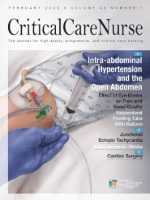
Critical Care Nurse
Pioneering Knowledge for Optimal Patient OutcomesCritical Care Nurse is a premier journal dedicated to advancing the field of critical care nursing, published by the American Association of Critical Care Nurses. With its consistent ranking in the Q1 category for Critical Care Nursing and impressive Scopus ranking at #8 out of 27, it serves as an essential resource for practitioners and researchers alike. The journal features innovative research, case studies, and reviews aimed at enhancing patient outcomes in critical care settings. As a significant contributor to nursing literature since 1980, Critical Care Nurse provides valuable insights and best practices that bridge the gap between theory and clinical practice, ensuring that professionals stay at the forefront of the ever-evolving healthcare landscape. While it is not an open-access journal, its high impact and relevance make it a critical read for those committed to excellence in critical care.